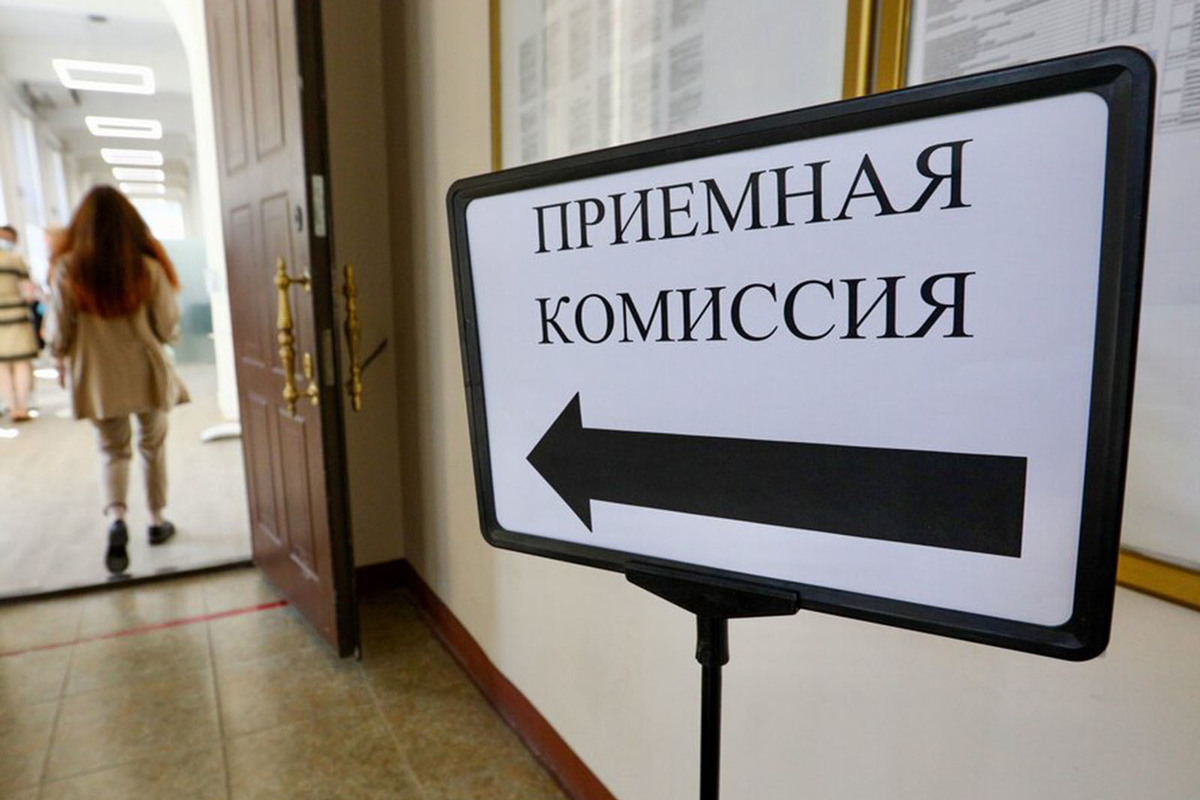The average score is growing: the rectors spoke about the results of the admission campaign
[ad_1]

Such areas as “history” and “engineering” are gaining popularity
10 days before the formal end of admission-2023, some universities are still accepting admissions for paid departments and master’s programs – rectors of leading universities shared their successes. And there are some – an increase in the number of applications in each university, an increase in average scores, an increase in enrollment in engineering. In addition, the rectors said that admission through the state portal, and not through a personal account at the university, will probably remain the only form of filing documents as early as next year.
True, the rector of MSTU. Bauman, Mikhail Gordin, with regard to admission exclusively through the state portal, expressed doubt that this would happen so quickly. Like, such a decision may not be liked by those “who have good “personal accounts”. Read cool and expensive sites at the university with a convenient scheduler for students, like in Baumanka. Although the heads of the HSE, Baumanka, Moscow Aviation Institute and Moscow State Pedagogical University praised the state portal: “There are no significant failures, it has become much better.”
The head of the HSE, Nikita Anisimov, also said that “Moscow and St. Petersburg have become even.” The highest score in Belokamennaya was “305 out of 300”, in St. Petersburg – 304 points. The greatest increase in the passing score, of course, in the “information systems” – plus 50 to last year. Well, the highest competition was in St. Petersburg, 169 people per place in the specialty “media communications”.
Anisimov said that this year 4 four-hundred-point students and 8 three-hundred-point students entered the HSE. And there are 398 Olympiads… no, not without a count, but 398. And there are many foreigners: “There are even from Peru and Haiti.” Foreigners, of course, study for a fee, while choosing such advanced areas as “communication digital design”.
MAI Rector Mikhail Pogosyan said that 17,000 people were recruited as engineers, which is 5,000 more than last year. And that there was no additional recruitment at the university. “There is a new industrialization in the country,” Poghosyan said, but “there is a shortage of engineering personnel.”
According to the rector, out of 3,600 new students, 1,166 entered the basic higher education with a longer period of study – MAI is one of the six universities participating in the experiment to avoid undergraduate studies. The average score at the MAI was 79, 520 people were recruited according to the target recruitment, as part of “interaction with the aerospace industry.” Network programs are also being developed – with the universities of Ulan-Ude, Smolensk, Eastern Siberia. That is, students from these universities receive part of the courses and programs in Moscow.
At MSTU im. Bauman, the areas of IT, laser and medical equipment, and space technology aroused the greatest interest among applicants. Although “Baumanka” does not participate in the experiment, 4 groups with six years of training in engineering specialties have also been created there. According to the story of Mikhail Gordin, 80 people with good USE scores entered there, one group even consisted entirely of Olympiads. The average score at the university is 68-80, the passing thresholds have increased in physics and engineering (for example, “nuclear energy” has increased by 7 points). Paid admission has increased by 25%, but at the same time there are “discounts for engineering”, and several people have been admitted to study at the expense of the university itself.
The topic of a new separate quota for SVO participants and their children was a red thread. The rector of MSTU spoke about an applicant who, having the right to such a benefit, entered the general competition. And the fact that he was a member of the SVO, it turned out only at the stage of registration of the hostel. “302 people entered under a separate quota, we accepted 90,” Gordin summed up. At the HSE, “159 people passed through a separate quota” to all campuses. “Back in the spring, we reported that 29 students from this category would study on a budget,” Anisimov said. And he added that 143 CBO participants or a child of a CBO participant will be transferred to the budget from other courses. This year, 90 people entered the MAI under a separate quota. 170 applicants applied for the quota to the Moscow State Pedagogical University, 60 were accepted.
At the meeting, the head of the only non-technical university, the rector of the Moscow State Pedagogical University, Alexei Lubkov, did not particularly juggle numbers. He limited himself to the fact that the highest score for future teachers was in philology and foreign languages - about 90. But people with a score of 69 passed to the teaching of physics, mathematics, computer science. “Something must be done about this,” Lubkov shared. The head of the Moscow State Pedagogical University was also worried about the situation with the Unified State Examination, especially with social science, which this year “passed worse”.
“But next year the subject will be completely different,” promised the rector of the university co-developer of the new school program in social studies. Lubkov also announced the story “already from the 1st grade.” And the fact that history will also “be completely different” when textbooks edited by Medinsky, Chubaryan and Torkunov are introduced in schools. “This year there were a lot of statements specifically about history,” noted, by the way, the head of the Moscow State Pedagogical University.
[ad_2]
Source link








